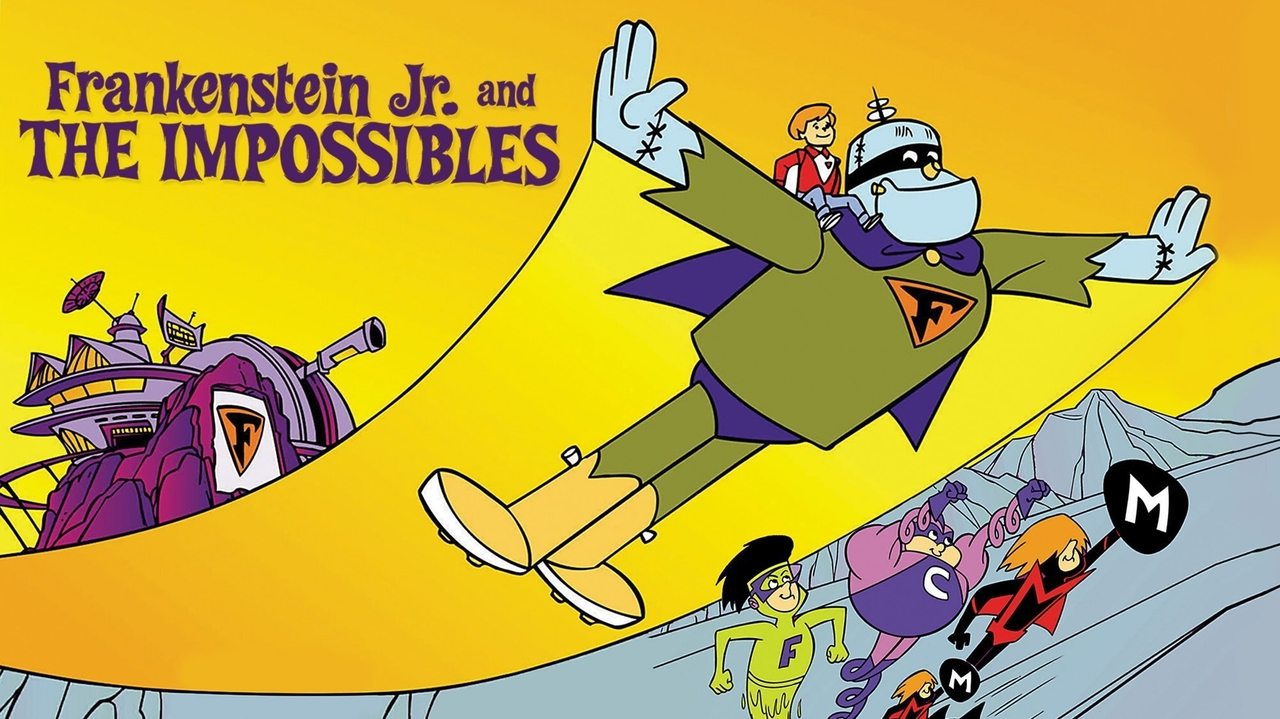

CBS
Featured Show:
Frankenstein, Jr. and The Impossibles
Boy genius Buzz Conroy’s powerful robot, Frankenstein Jr. cranks into action along with a group of crime fighting superheroes disguised as a beatnik rock group, The Impossibles, making hot-rockin’ musical justice!
CBS TV Shows
1438 shows • Page 52 of 72

Frankenstein, Jr. and The Impossibles
Boy genius Buzz Conroy’s powerful robot, Frankenstein Jr. cranks into action along with a group of crime fighting superheroes disguised as a beatnik rock group, The Impossibles, making hot-rockin’ musical justice!

Hippodrome
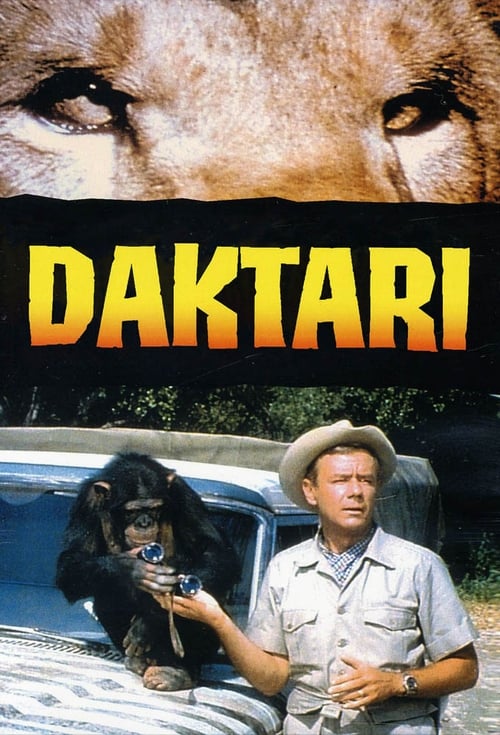
Daktari
Daktari is an American children's drama series that aired on CBS between 1966 and 1969. The series, an Ivan Tors Films Production in association with MGM Television, stars Marshall Thompson as Dr. Marsh Tracy, a veterinarian at the fictional Wameru Study Centre for Animal Behaviour in East Africa.
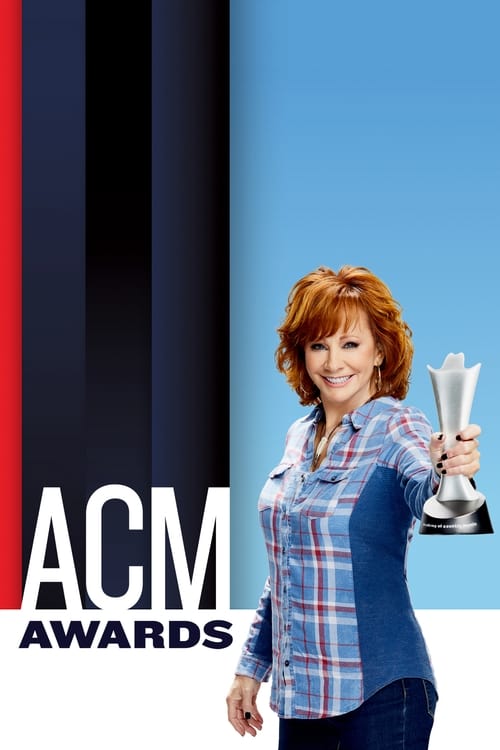
Academy of Country Music Awards
Awards ceremony honoring the country music industry's accomplishments during the previous year.

The Loner
The Loner is an American western series that ran for less than one season on CBS from 1965 to 1966, under the alternate sponsorship of Philip Morris and Procter & Gamble.
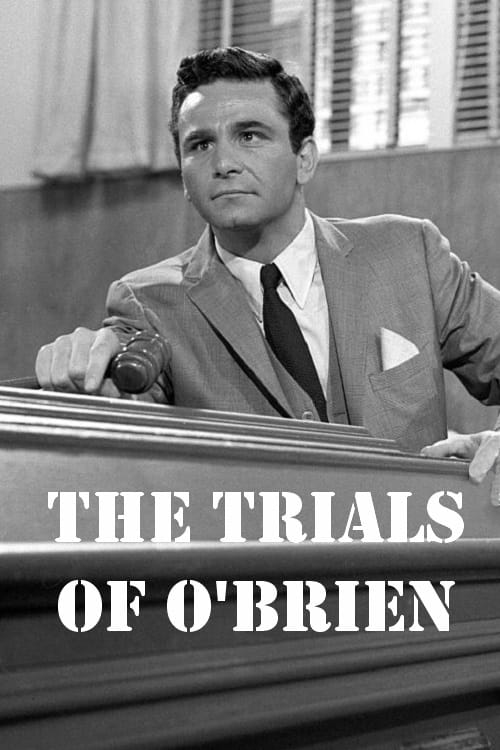
The Trials of O'Brien
The Trials of O'Brien is a 1965 television series starring Peter Falk as a sordid Shakespeare-quoting lawyer and featuring Elaine Stritch as his secretary and Joanna Barnes as his ex-wife. The series ran for only 22 episodes. Among its guest stars: Milton Berle, Robert Blake, David Carradine, Faye Dunaway, Britt Ekland, Tammy Grimes, Buddy Hackett, Gene Hackman, Frank Langella, Angela Lansbury, Cloris Leachman, Roger Moore, Rita Moreno, Estelle Parsons, Joanna Pettet, Brock Peters, Tony Roberts and Martin Sheen. Falk often said that he actually liked this financially unsuccessful series much better than his later smash-hit Columbo.

Get Smart
Get Smart is an American comedy television series that satirizes the secret agent genre. Created by Mel Brooks with Buck Henry, the show stars Don Adams, Barbara Feldon, and Edward Platt. Henry said they created the show by request of Daniel Melnick, who was a partner, along with Leonard Stern and David Susskind, of the show's production company, Talent Associates, to capitalize on "the two biggest things in the entertainment world today"—James Bond and Inspector Clouseau. Brooks said: "It's an insane combination of James Bond and Mel Brooks comedy." This is the only Mel Brooks production to feature a laugh track. The success of the show eventually spawned the follow-up films The Nude Bomb and Get Smart, Again!, as well as a 1995 revival series and a 2008 film remake. In 2010, TV Guide ranked Get Smart's opening title sequence at No. 2 on its list of TV's Top 10 Credits Sequences, as selected by readers.
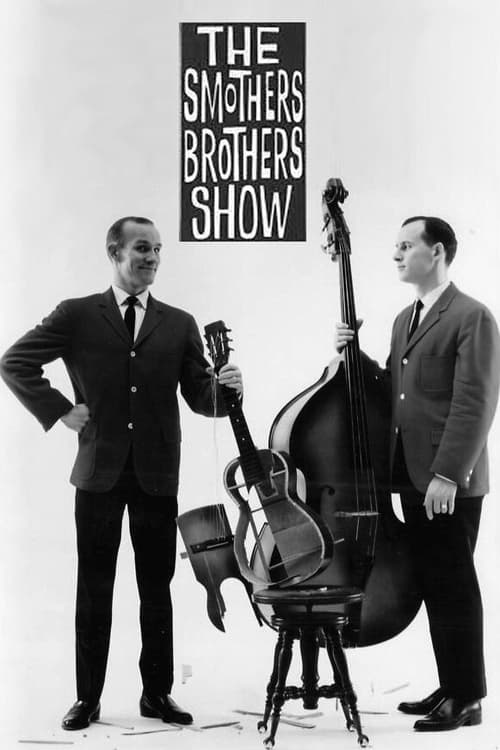
The Smothers Brothers Show
The Smothers Brothers Show is an American fantasy sitcom featuring the Smothers Brothers that aired on CBS on Friday nights at 9:30 p.m. ET from September 17, 1965 to September 9, 1966, co-sponsored by Alberto-Culver's VO5 hairdressing products and American Tobacco. It lasted one season, consisting of 32 episodes. It was also the network's last situation comedy filmed in black-and-white; shortly after its final telecast, all CBS prime-time series were transmitted in color.
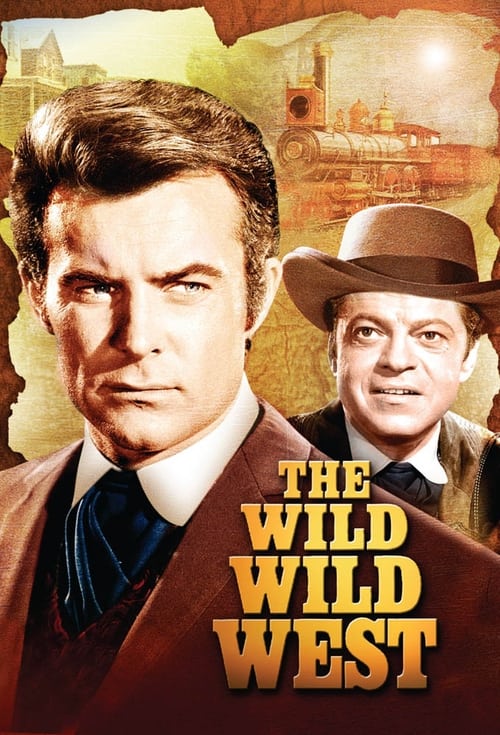
The Wild Wild West
The Wild Wild West is an American television series. Developed at a time when the television western was losing ground to the spy genre, this show was conceived by its creator, Michael Garrison, as "James Bond on horseback." Set during the administration of President Ulysses Grant, the series followed Secret Service agents James West and Artemus Gordon as they solved crimes, protected the President, and foiled the plans of megalomaniacal villains to take over all or part of the United States. The show also featured a number of fantasy elements, such as the technologically advanced devices used by the agents and their adversaries. The combination of the Victorian era time-frame and the use of Verne-esque style technology have inspired some to give the show credit for the origins of the steam punk subculture.
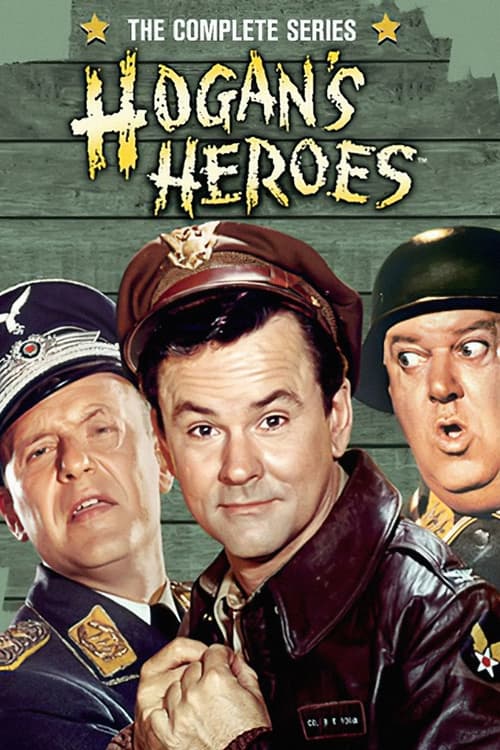
Hogan's Heroes
Hogan's Heroes is an American television sitcom that ran for 168 episodes from September 17, 1965, to July 4, 1971, on the CBS network. The show was set in a German prisoner of war camp during World War II. Bob Crane starred as Colonel Robert E. Hogan, coordinating an international crew of Allied prisoners running a Special Operations group from the camp. Werner Klemperer played Colonel Wilhelm Klink, the commandant of the camp, and John Banner was the inept sergeant-of-the-guard, Hans Schultz. The series was popular during its six-season run. In 2013, creators Bernard Fein through his estate and Albert S. Ruddy acquired the sequel and other separate rights to Hogan's Heroes from Mark Cuban through arbitration and a movie based on the show has been planned.
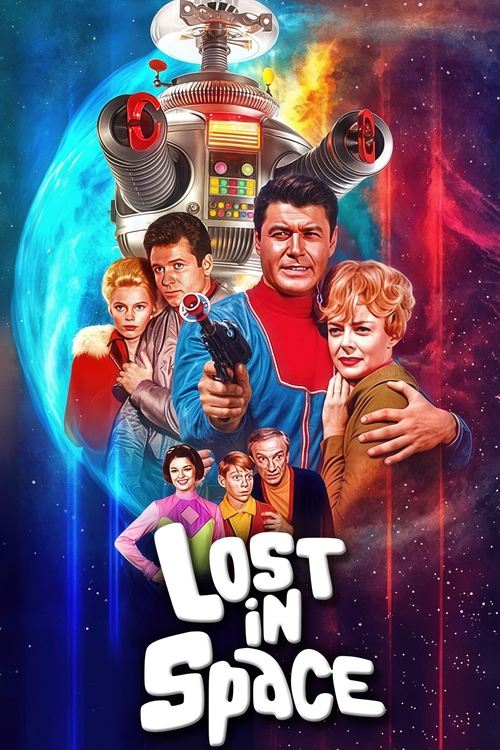
Lost in Space
The space family Robinson is sent on a five-year mission to find a new planet to colonise. The voyage is sabotaged time and again by an inept stowaway, Dr. Zachary Smith. The family's spaceship, Jupiter II, also carries a friendly robot who endures an endless stream of abuse from Dr. Smith, but is a trusted companion of young Will Robinson
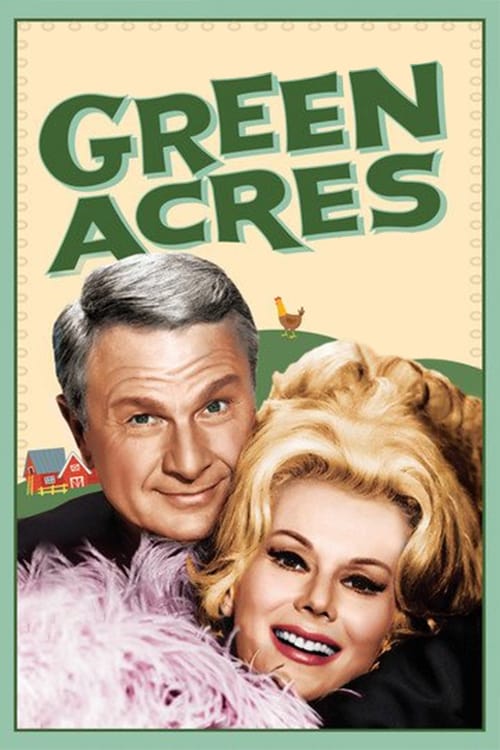
Green Acres
Green Acres is an American sitcom starring Eddie Albert and Eva Gabor as a couple who move from New York City to a rural country farm. Produced by Filmways as a sister show to Petticoat Junction, the series was first broadcast on CBS, from September 15, 1965 to April 27, 1971. Receiving solid ratings during its six-year run, Green Acres was cancelled in 1971 as part of the "rural purge" by CBS. The sitcom has been in syndication and is available in DVD and VHS releases. In 1997, the two-part episode "A Star Named Arnold is Born" was ranked #59 on TV Guide's 100 Greatest Episodes of All Time.
 0
0Fanfare
Fanfare is an American musical variety series that aired on CBS during the summer of 1965.

For the People
For the People is an American Legal drama that aired from January 31 until May 9, 1965.
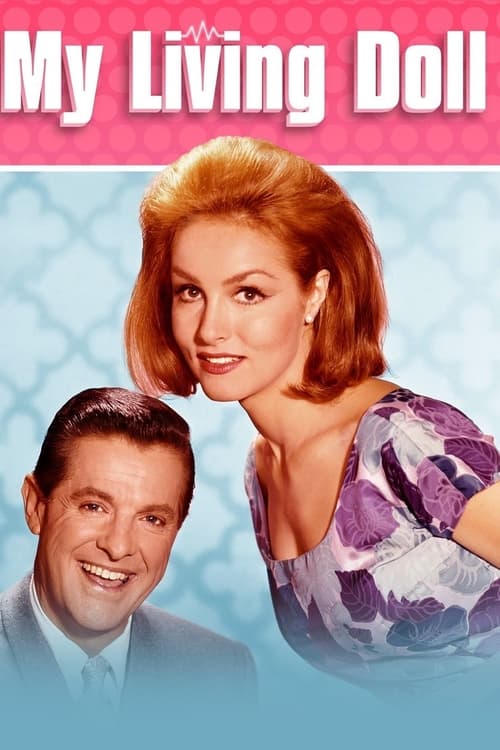
My Living Doll
A psychiatrist is given care of Rhoda Miller (real name "AF 709"), a life-like, sophisticated, but naïve android that eventually learns how human society works and begins showing -- or at least emulating -- rudimentary emotions.
 0
0Mr. Broadway
Mr. Broadway is an American 13-episode CBS adventure and drama television series starring Craig Stevens as New York City public relations specialist Mike Bell. The program aired at 9 p.m. Eastern time Saturdays from September 26 to December 26, 1964. Also featured were Bell's assistant, Toki, portrayed by Lani Miyazaki, and his police contact, Hank McClure, played by Horace McMahon. Mr. Broadway, a Talent Associates Production, was created by Garson Kanin and produced by David Susskind and Daniel Melnick. Dave Brubeck supplied the music and theme. It was shot on location in New York City. Mr. Broadway episodes have unusual titles. The series included rare guest appearances by Liza Minnelli, in her first television dramatic role, as Minnie in "Nightingale for Sale"; Sandy Dennis in "Don't Mention My Name in Sheboygan", and Lauren Bacall as Barbara Lake, with Martin Balsam as Nate Bannerman, in "Something to Sing About". Other episodes are "Keep an Eye on Emily" with Tuesday Weld as Emily and Oleg Cassini as himself, "Take a Walk Through a Cemetery" with Lauren Bacall, again, but also with Jason Robards, Jr., and Jill St. John, "Try to Find a Spy" with Barbara Feldon and Simon Oakland, "Between the Rats and the Finks" with Larry Hagman, Dyan Cannon, Bruce Gordon, and Patrick McVey, "The He-She Chemistry" with Tammy Grimes, "Maggie, Queen of the Jungle", with Nina Foch in the title role, "Smelling Like a Rose" with Art Carney, Hal Roach, and Tina Louise, "Bad Little Rich Girl" with Diana Van der Vlis as Mary Beth Warren and Larry Pennell as John Chambers, "Sticks and Stones May Break My Bones" with Philip Abbott as Geoffrey Karr and Lola Albright as Duff Daniels. Albright had been Stevens's co-star on Peter Gunn, and "Pay Now, Die Later", the series finale, with David Wayne as John Zeck and John Ireland as Jimmy King. In the latter episode the wealthy Zeck hires Mike Bell to write his obituary ahead of his death.
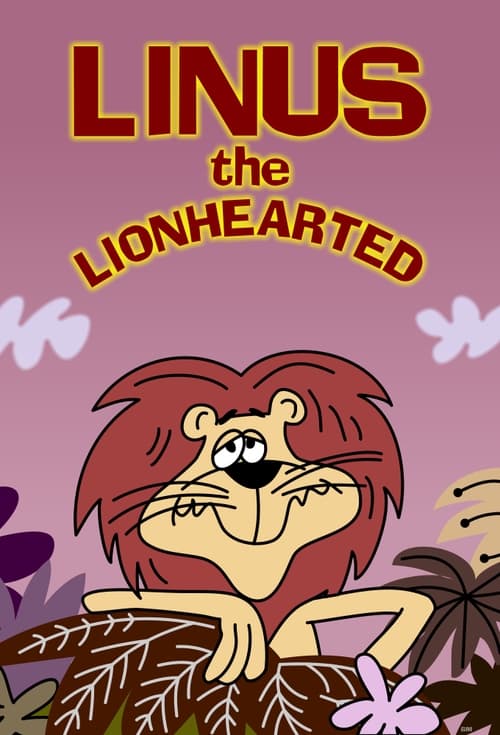
Linus the Lionhearted
Linus the Lionhearted is an American animated television series featuring a main character of the same name. The character was created in 1959 by the Ed Graham advertising agency, originally as a series of ads for General Foods' Post Cereals. At first, Linus was the spokesman for the short-lived Post cereal "Heart of Oats". Eventually, the lion was redesigned and reintroduced in 1963 to sell Crispy Critters, which featured Linus on the box. The ads were so popular that a television series was created in 1964 and ran on the CBS network until 1966, then reruns [in color] aired on ABC from 1966, until it was cancelled three years later. A coloring book was published which detailed the adventures of So-Hi going on a scavenger hunt in order to break a curse on a two-headed bird, who is then transformed into a boy due to So-Hi's dedication. In addition to Linus, a rather good-natured "King of the Beasts" who ruled from his personal barber's chair and voiced by Sheldon Leonard, there were other features as well, all based on characters representing other popular Post cereals. The best-known of these was Sugar Bear, who sounded like Bing Crosby and was voiced by actor Gerry Matthews. There was also a postman named Lovable Truly, a young Asian boy named So Hi, and Rory Raccoon.
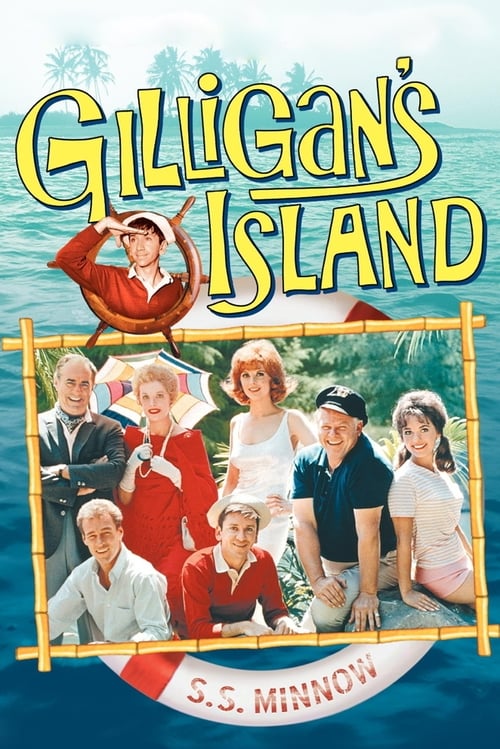
Gilligan's Island
The slapstick adventures of hapless Gilligan, long-suffering Skipper and their gang of mismatched castaways, all stranded on an uncharted desert isle after their tiny ship hit stormy weather.

Reporter
The Reporter is an American drama series that aired on CBS from September 25 to December 18, 1964. The series was created by Jerome Weidman and developed by executive producers Keefe Brasselle and John Simon.
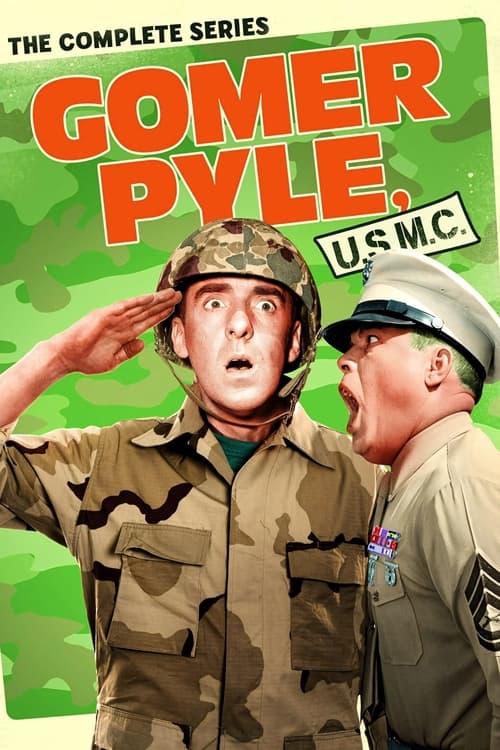
Gomer Pyle, U.S.M.C.
Gomer Pyle, U.S.M.C. is an American situation comedy that originally aired on CBS from September 25, 1964, to May 2, 1969. The series was a spinoff of The Andy Griffith Show, and the pilot was aired as the finale of the fourth season of The Andy Griffith Show on May 18, 1964. The show ran for five seasons and a total of 150 episodes. In 2006, CBS Home Entertainment began releasing the series on DVD. The final season was released in November 2008. The series was created by Aaron Ruben, who also produced the show with Sheldon Leonard and Ronald Jacobs. Filmed and set in California, it stars Jim Nabors as Gomer Pyle, a naive but good-natured gas-station attendant from the town of Mayberry, North Carolina, who enlists in the United States Marine Corps. Frank Sutton plays Gomer's high-octane, short-fused Gunnery Sergeant Vince Carter, and Ronnie Schell plays Gomer's friend Gilbert "Duke" Slater. Allan Melvin played in the recurring role of Gunnery Sergeant Carter's rival, Sergeant Charley Hacker. The series never discussed nor addressed the then-current Vietnam War, instead focusing on the relationship between Gomer and Sergeant Carter. The show retained high ratings throughout its run.